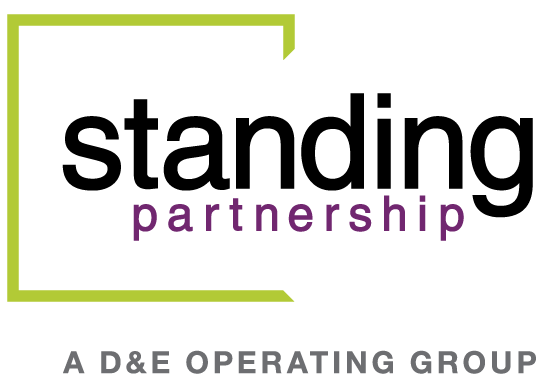Why B2B Companies Need a Sustainability Reporting Strategy
There are many reasons to deploy a sustainability reporting strategy, including supporting business growth and talent retention.
B2B companies are facing increased pressure from investors, regulators and customers to start—or improve—reporting on sustainability matters.
Climate change, employee health and safety, DEI—companies today are facing these important issues and more. All of these relate to how the company is managing material risks to the business, business impact on the environment, employees, and communities, and integrating these factors into business planning for the long term.
For B2B companies in particular, two key stakeholders are driving your need for sustainability reporting. The first are investors assessing if the company is managing risks related to climate change, employee safety, as well as investing in more sustainable offerings for the future. The second are the businesses that buy from your company and need to understand how your business will impact their own climate reduction and other sustainability goal targets they’ve committed to hit.
There are many reasons why B2B companies should take action when it comes to sustainability strategy and reporting.
Sustainability strategy is good for your business
While B2B companies may not directly answer consumer calls for sustainable products, the companies they sell to are. The supply chain is all interconnected. B2C companies are feeling pressure from their own customers and retailers to set and hit science-based targets for greenhouse gas (GHG) emission reductions. To meet those, those companies will need to address Scope 3 GHG emissions from their supply chain, asking suppliers to not only report on your emissions but have your own strategy in place to manage emissions.
A sustainability strategy and reporting also supports your business objectives. For example, collecting your waste data gives you a better picture of areas of inefficiency that can be corrected to reduce waste volume and/or reducing landfill costs, ultimately driving down costs. Another example is identifying methods to sell waste byproducts as an additional revenue stream.
Many companies are also making strategic investments in developing more sustainable product offerings that could fetch a premium price tag. In a recent McKinsey article, Senior Partner Georg Winkler noted that their research shows companies with more biologic, recyclable, or low-carbon products actually perform better than peers on the capital markets, achieving higher shareholder returns.
Sustainability strategy is good for your investor relations
Most investors recognize that sustainability risks can have a material financial impact.
For example, climate change and extreme weather could cause damage to your current facilities or play a role in determining the location of future facilities to avoid weather impact. The reliability of supply chains can also be tested by extreme weather, as well as employee safety as we saw with COVID-19. Poor employee safety measures also can result in lost time and lower productivity. A portfolio of products associated with human health or environmental risks can be seen as a liability.
Developing a sound sustainability strategy, and reporting on progress against it, can improve investor confidence in your company, and even become part of your competitive differentiator.
Sustainability assets are on track to exceed $50 trillion by 2025, according to new research by Bloomberg Intelligence. The U.S. Securities and Exchange Commission has proposed mandating disclosures about risks from climate change.
Rating agencies such as MSCI, Sustainalytics, EcoVadis and others review the performance and business portfolios of publicly listed companies and flag issues that present a risk from a sustainability standpoint.
Many asset management companies are starting to demand sustainability performance reporting from the companies in which they invest—and provide only a short window of time for companies to comply. You don’t want to be caught flat footed in those instances.
Sustainability reporting strategy is good for your talent retention
As workforce demographics shift, many employees are looking for companies with values. Millennials and Gen Zs now make up 46% of the U.S. workforce and their expectations for employers are value-driven. Deloitte found that nearly half of millennials and Gen Zs in senior positions have made decisions about the type of organizations they will work for based on their personal ethics. But at the same time, 60% fear business leaders are not currently focused on protecting the environment. Without a strong commitment to the environment, organizations may be at a tipping point when it comes to hiring and retaining the best talent.
The reality is, it’s no longer just consumer-facing companies that need to make sustainability a priority. The focus has shifted and put a spotlight on the entire value chain. Ultimately company leaders need to show customers, investors, suppliers, and employees that they are doing everything they can to be the best they can be—for people, the planet and for the long-term success of the company.
Building your sustainability strategy doesn’t have to be complicated. Whether it’s time to audit your existing sustainability reporting or determine where to start, Standing Partnership can help by:
- Performing an industry and peer assessment to examine the trends in your industry and pinpoint potential areas of opportunity.
- Evaluating the data already available. Many companies are already collecting some of the critical information for reporting—we’ll help you take the next step by collecting and compiling what you already have and identify the gaps.
- Advising on how to organize a sustainability report based on the frameworks your stakeholders have come to expect.
If you’d like to talk to one of our sustainability reporting experts, let us know at inquiries@standingpartnership.com.

